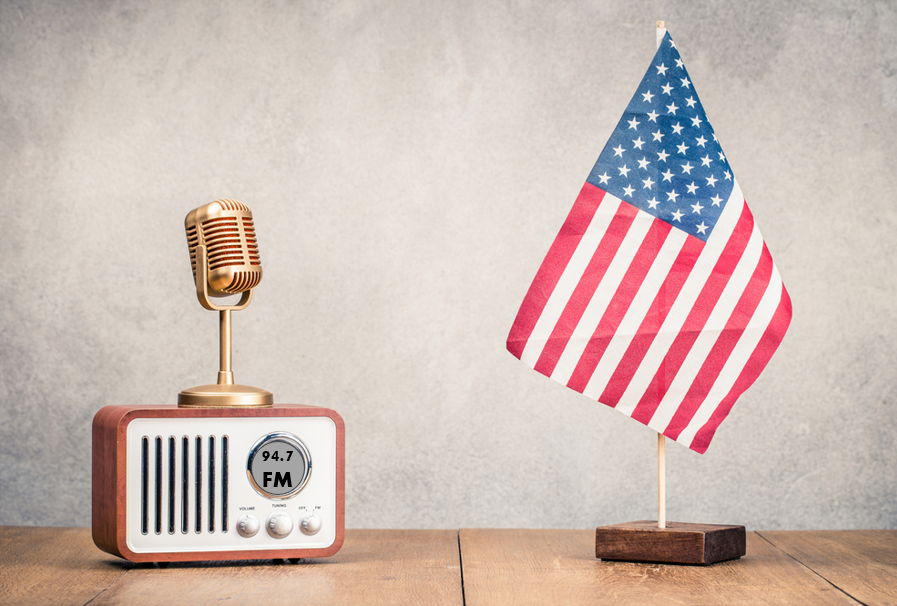
One of those “radio rules” (outside of News/Talk radio, of course) is to steer clear of the political dumpster fire. In a year that is rapidly going off the rails, there are signs the pubic is already beyond fatigued over the upcoming elections – and there are nearly eight months to go.
Public radio has already suffering from a case of RHS syndrome. That is, Rapid Handwringing Syndrome. (Not to worry, ladies and gents, Big Pharma is working on a vaccine.) On NPR News stations, the program lineup can be a rabbit hole of political repetition, as one show leads into the next, often covering the same stories – not exactly tailor-made for time-spent listening, and often an invitation to escape to many of public radio’s jazz or classical station or relief.
Of course, the angst is driven by “The Golden Ground Hog Day” race to the White House, as the two candidates may be using walkers by the end of the winner’s Presidential term – assuming they each live that long.
Unlike ABC’s wildly successful, “The Golden Bachelor” (spinoffs coming soon), this next iteration of the Trump/Biden campaigns promise no more excitement or even drama – just more of the same. Given the constant “debate” about the political viability of the last election, it feels like we’ve been debating and litigating for four more years now, its because we have.
But for radio advertising, perhaps it will be a different story. The last time these two guys faced each other, I wrote a blog post just a few weeks before the 2020 election. If you think things haven’t changed all that much, consider Donald Trump was Rush Limbaugh’s radio guest for two hours in the days leading up to the election.
But the interesting story was that then-candidate Joe Biden was outspending Trump by more than 50-1…on radio ads! That story was filed by McClatchy’s Adam Wollner in a special section called “Impact 2000.”
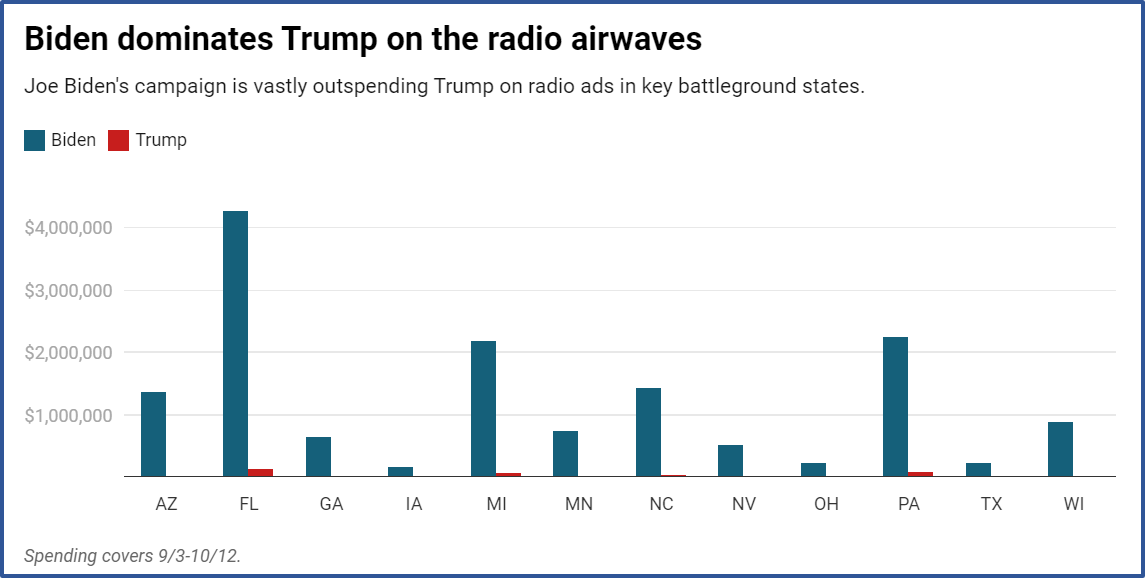
The chat above is from that story, and when you look at the results of the 2020 election – assuming you believe they were true – and it’s an interesting look back at history, while questioning what may happen this time around.
So what’s different this time around? Well, for starters, Talk/Radio is missing “the face of the format.” And while there are other mini-Rushes blathering away, it’s just not the same.
But now, we have AI, sure to be a disrupter. In fact, fears of how this technology may subvert the election with disinformation, deep fakes, and weird TikTok videos dominated all three of our most recent Techsurveys. Here’s how public radio core listeners express their growing sense of discomfort. Not surprisingly, women and older folks are most apt to be in a lather over AI’s potential impact on the election process.
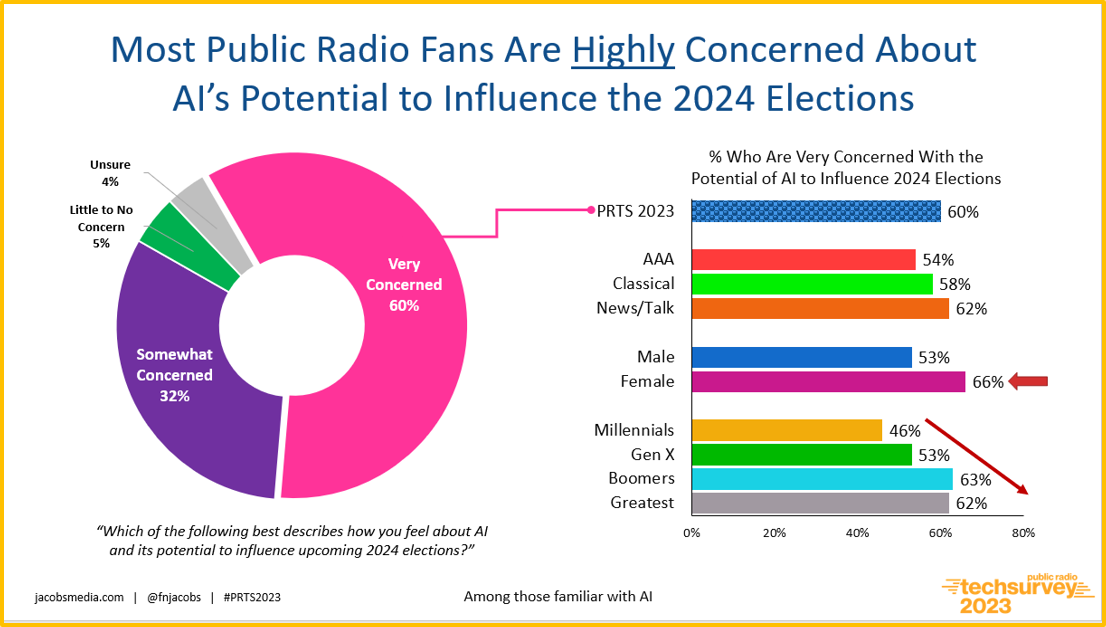
And then there’s AI’s ability to create cool but distorted images reflecting the upcoming political contest, as well as the role radio might play in how it all shakes out.
So I put AI to the test. Maybe I need to brush up on my commands, but here’s how Microsoft’s Copilot interpreted my instructions to create an image that mashed up the U.S. election with radio:
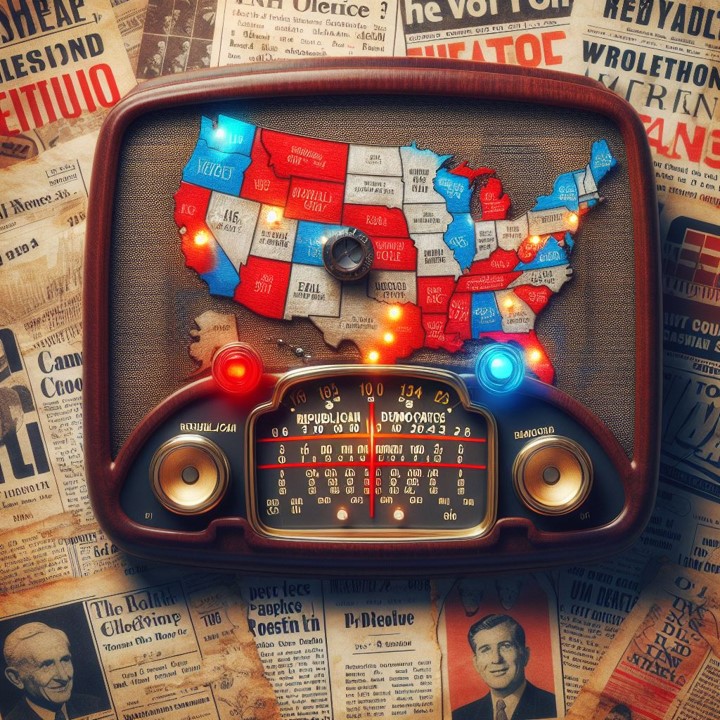
It’s oddly disturbing in an AI style that we’re becoming strangely accustomed to seeing, reminiscent of those old Superman “Bizzaro” comic strips that distorted the reality of the D.C. superhero and the world of Metropolis. Perhaps this is our way of reliving the nightmare today.
But the good news is there’s updated election information that might prove useful to your sales teams over the coming months. Katz has a powerful tool I ran into this week in RBR-TVBR.
In “Both Biden and Trump Turn To AM/FM To Sway Key Multicultural Vote,” we pick up where we left on in 2020. Radio continues to emerge as a powerful tool for connecting with desirable voter demographics, supporting Biden’s turn of the phrase, “Meeting voters where they are.”
Inside the story, there’s a link to what’s called Katz Local Vote data, a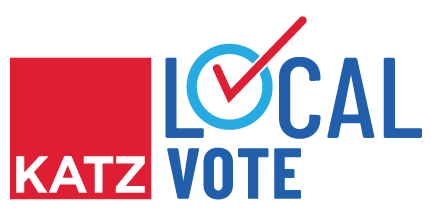 treasure trove of stats, infographics, and interactive charts any radio seller could use to drill down to the state and market levels.
treasure trove of stats, infographics, and interactive charts any radio seller could use to drill down to the state and market levels.
It’s good-looking and easy to use. Here’s the breakdown for my favorite state. The graphics are sharp, it’s easy to use, and could make great support materials:
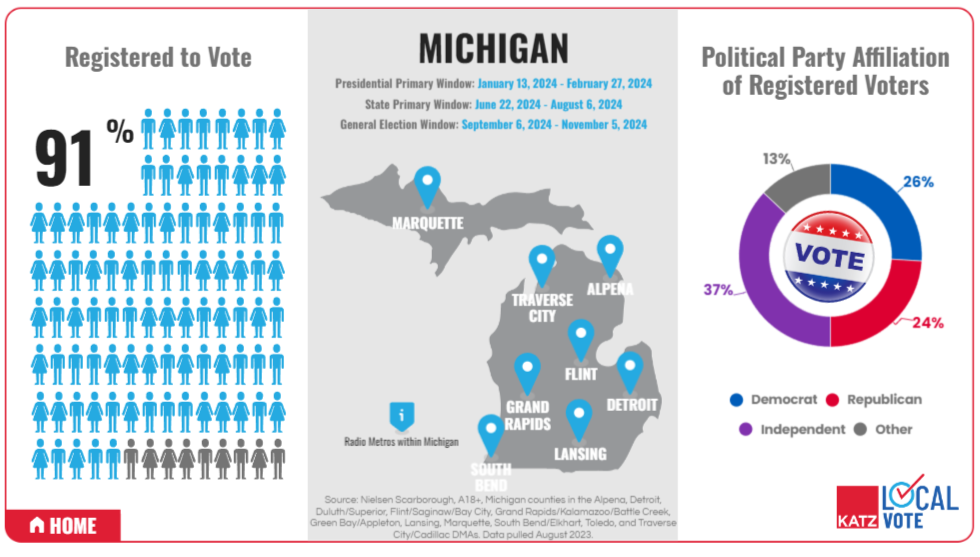
To aid U.S. radio stations this year, we hustled out our “Radio Road Map For Political Marketers” earlier this week. If you haven’t seen it yet, check it out.
There are charts from the recently fielded Techsurvey 2024 – by format – especially helpful for stations and clusters making their pitch to local and state political operatives. Ours is the only research that uses format crosstabs, especially helpful as political types slice and dice the electorate.
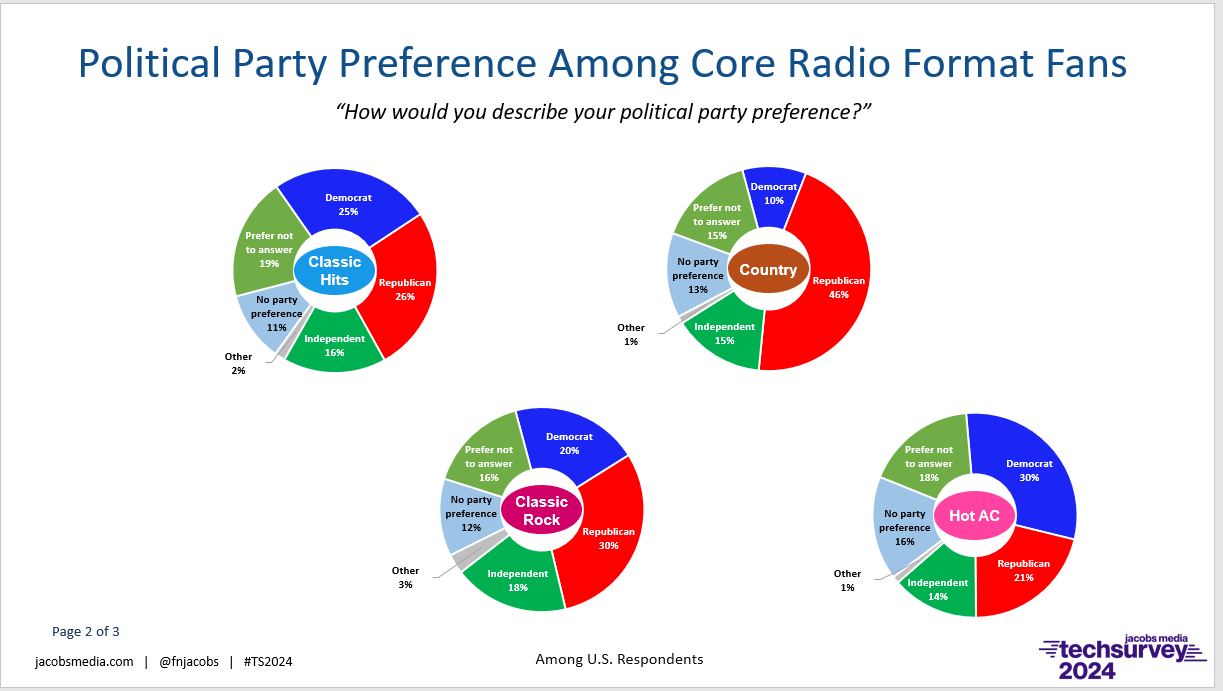
Once again, radio stands out as the only mass medium that can easily deliver these key audiences. You can access our entire report here for free.
One last thing, and it’s a theory, not a fact. But I wonder if all this lobbying over the past year in state capitols and in Washington, D.C. on behalf of the “AM Radio For Every Vehicle Act” hasn’t had the unintended consequence of raising the industry’s awareness.
Untold hours, dollars, and cocktails have been allocated toward this effort often by state broadcaster associations, and in the process, hopefully broadcast radio has emerged as more visible, essential, and connected.
A story today in Radio Ink – “State Broadcast Leaders Report The State of Radio On Capitol Hill” – reinforces my premise. Michigan Association of Broadcasters’ CEO Sam Klemet reports his team met with 13 of 15 of his state’s office as part of their annual visit.
Similarly, New York State Broadcasters Association, David Donovan, reported these connection continue to yield results. As of now, 230 House member have co-sponsored the “AM Radio For Every Vehicle Act’ – a pickup of 7 new legislators hopping on the bandwagon.
2024 may feel like another political “same at ever was” election cycle, but the signs are there for radio.
It has been said “We get the government we deserve.” I agree.
We will also get the political advertising we deserve.
Go get it.
- What If Radio Tried Something Right Out Of Left Field? - May 9, 2025
- Why Radio PDs Are A Lot Like NBA Coaches - May 8, 2025
- Memo To Radio: We Have Met The Enemy And It Is… - May 7, 2025




We need to get on the Get Rid Of Third Adjacent Restriction Act . Its time rural small FM broadcasters had a chance.
It’s not November yet, but the candidates ragging on the other candidates continues. No one’s addressing the real issues (economy, border, homeless). Radio could (and should) step up to put the major candidates on the spot by grilling them on their platforms. We already know Biden doesn’t like Trump, and vice-versa. Dems hate Repubs and vice-versa. Between now and November radio could drive voters to understanding what we can expect from whoever wins in November. I know what we THINK will happen, but neither of the “big guys” has let us know from their view. More inflation? More wars? More anger? Personally I’d like to know which candidate is BETTER, not why the other one is worse. Radio can do that!! Overall, radio failed to plan on the eventual departure of Rush. None of the many “replacements” has even come close to filling the void created when he passed away. Radio is still show business. Isn’t it?
Your last line – radio is still show business. I have my doubts most radio stations couold intelligently incease our understanding of the candidates and where they stand. The political world is chaos, and I’m not sure the past journalists in oour country could make it work. Would I like to see public radio try? Yes.